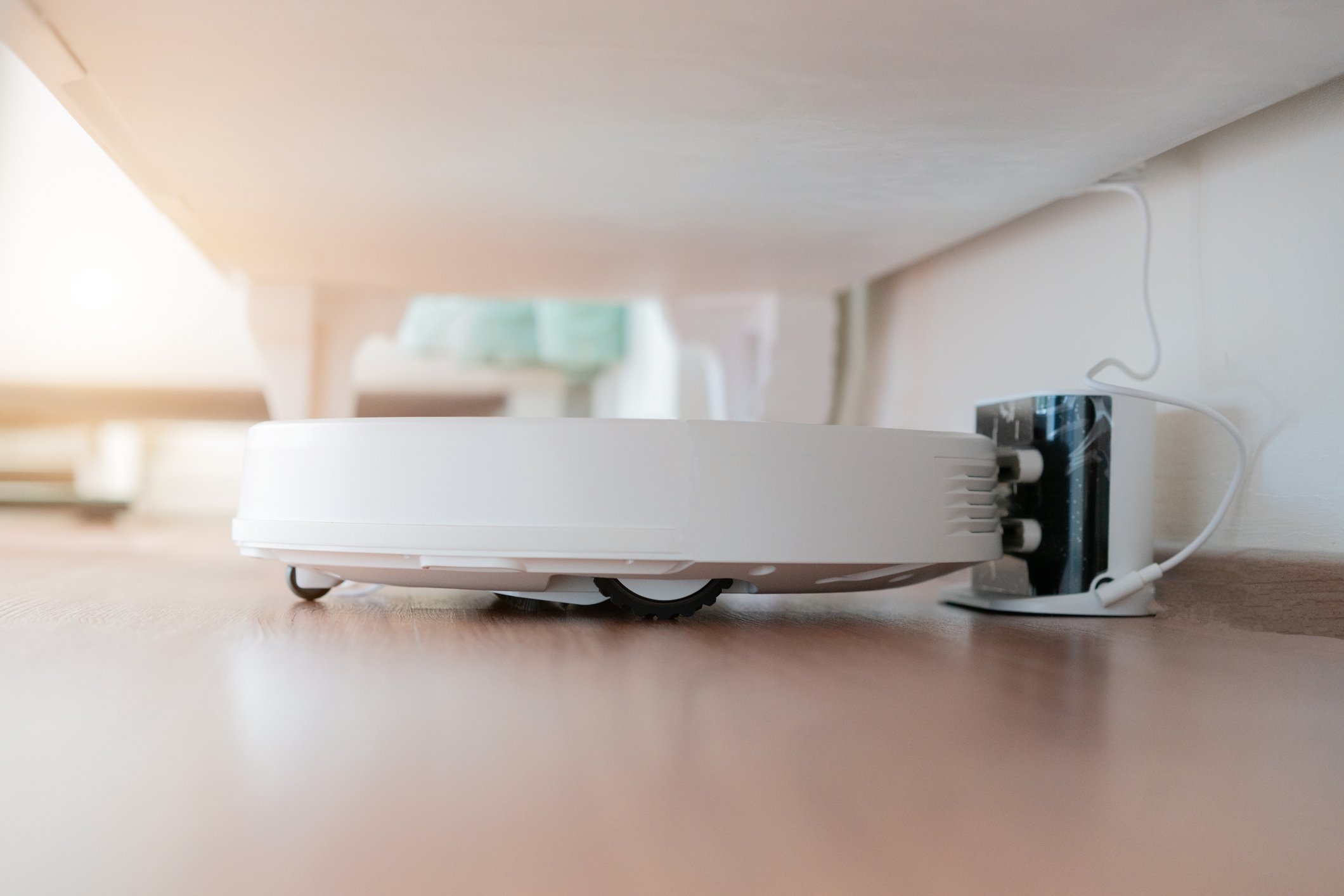Though it may not seem so at first glance, the folks at iRobot (IRBT 67.11%) are the first to welcome competition. In fact, when Dyson announced its 360 Eye robotic vacuum in 2014 to compete with iRobot's flagship Roomba line, CFO Alison Dean argued the move was a "positive indicator for the space" that served to validate the robotic broader vacuum cleaner market.
But in the high-tech world of home robotics, that competition must be fair. To that end, iRobot flexed its IP muscle on Tuesday by announcing it has won the wide-reaching patent-infringement case it brought to the International Trade Commission (ITC) in April 2017.

IMAGE SOURCE: GETTY IMAGES.
"Barred from importation"
More specifically, iRobot says the ITC has issued a "Notice of Final Determination [...] confirming that U.S. Patent No. 9,038,233 is valid and infringed, and that the infringing products should be barred from importation into the United States."
To be clear, iRobot had already struck favorable settlements with several of the original infringing manufacturers named in its case, notably including deals with Black & Decker, Taiwan-based Micro-Star International, China-based Shenzhen Zhiyi, and Bissell partner Matsutek. But those remaining infringing products affected by this decision -- which essentially confirms a limited exclusion order issued a few months ago preventing their importation into the U.S. -- include strikingly Roomba-esque vacuums from bObsweep, Hoover, and China-based Shenzhen Silver Star.
iRobot's chief legal officer, Glen Weinstein, stated:
Today, iRobot took one step further in its enforcement campaign against serial infringers. Blatant acts of infringement, like those of the Respondents, will not be tolerated by iRobot. Today's final determination once again confirms the strength and validity of iRobot's intellectual property. We thank the Commission and Judge Pender for their time and attention to this case.
It's not over yet
Still, Weinstein elaborated that iRobot will continue pursuing its litigation campaign through a separate district court case brought at the same time as its ITC complaint. In addition, before this final determination is truly set in stone, it must endure a mandatory 60-day "presidential review period" during which U.S. President Trump could choose to modify its terms.
It would be stunning if President Trump opted to nullify the determination, especially considering his widely publicized stances on protecting American companies' intellectual property. But given the unpredictable nature of Trump's presidency, and considering iRobot is already feeling the pinch of recently implemented tariffs on robotic vacuums imported from China -- where its Roombas are currently manufactured -- it's certainly not outside the realm of possibility.
This could also be a moot point in the the fast-evolving world of home robotics as new, even more innovative robotic vacuums are released. Of course, iRobot is still enjoying overwhelmingly positive consumer demand for its own smart new self-cleaning i7+ vacuums. But the need for sustained innovation is also something of which iRobot is well aware.
"Patent litigation is only one of our competitive tools," said iRobot co-founder, Chairman, and CEO Colin Angle. "Continuing to innovate and lead with new products like the Roomba i7+ with Clean Base Automatic Dirt Disposal, all of which are strongly protected by patents that we will continue to enforce, will remain a focus of the company in the years to come."
In the end, it remains to be seen whether iRobot's ITC victory will deter patent infringers from shamelessly copying its newest technology. But if one thing is sure, whether through litigation or innovation, it's that iRobot will do everything in its power to continue mopping the floor with the competition.





